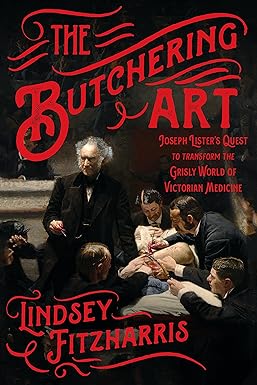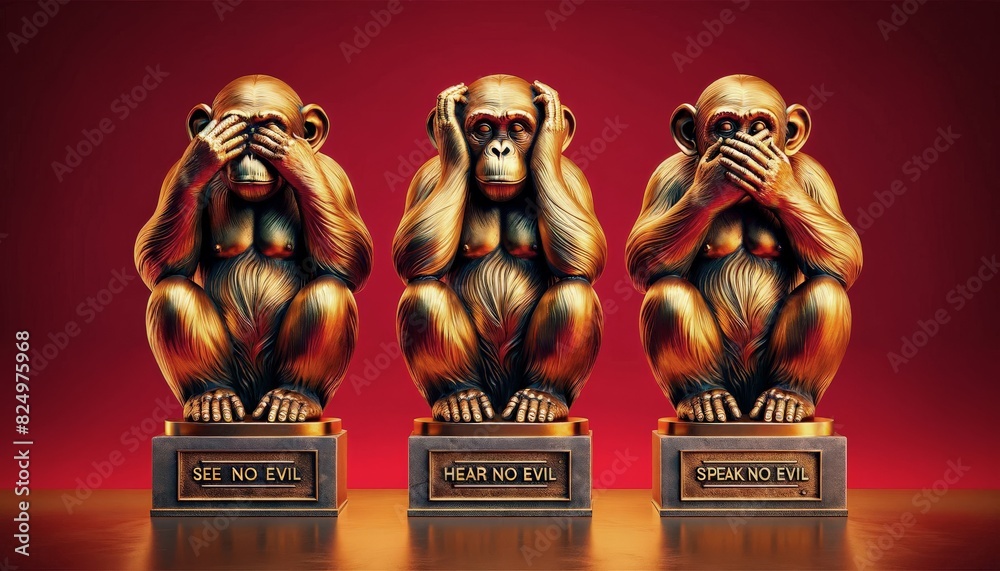I have just completed The Butchering Art, a book detailing one man’s mission to revolutionize Victorian-era surgery, transforming it from a near-certain death sentence into a life-saving practice. In today’s modern world of medicine, we often forget that we aren’t too many generations removed from a world that didn’t know anything about germs and sanitation. There’s a lot to be said about the things out there that affect our lives that we cannot see. The same can be said about our spiritual lives as well.

The Butchering Art
First, the book. This is a great read if you’re interested in the evolution of surgery in the 19th century. You’ll learn that:
- Surgery had an almost 80% mortality rate and is something people with means avoided at all costs.
- Surgery was seen as a trade, like a barber or butcher. Surgeons weren’t treated as doctors or practitioners of medicine.
- Surgeons made less than janitors at some hospitals.
- Doctors and scientists felt that the microscope was an amusing toy but not something that enhanced our understanding of science and medicine.
- Surgeons rarely washed their hands, aprons, and tools between surgeries and dissections.
- If you survived the surgery, you would still have a high chance of dying from infection.
The book follows Joseph Lister, a man who introduced science-based practices to surgery. His large contribution to the field was introducing antiseptics and better hygiene practices. He emphasized the importance of post-surgical wound cleaning. And even when his ideas showed positive results (the queen of England called on him to remove an abscess), many learned doctors dismissed his ideas as quackery.
Joseph Lister fought hard to convince the medical community that these little organisms called “germs” were responsible for the high failure rate of surgeries. There was this notion that medicine, surgery in particular, was more mechanical in nature and you could understand how the human body behaves by observation and experimentation. The idea that something invisible has a dramatic effect on someone’s odds of recovery was laughable. Now, those doctors’ ignorance of germs and dismissal of practices to combat them is laughable in today’s modern world.
Moral Courage
I drew some spiritual parallels from this book. I think so many people today are dismissive of God and spirituality because He’s not something that can be directly observed or understood. We often fear what we cannot understand because it forces us to admit that there are things outside our power to comprehend. We don’t like the fact that no matter how hard we try, we won’t ever have the same level of understanding and wisdom as God. Instead of accepting that, many people rebel, dismiss, or ignore God.

I think there’s another way to look at this question of God. I’m comforted by the idea that there is something greater outside my understanding and control. I’m like a child resting comfortably knowing that God is in control of everything and that He guides me towards eternal happiness. He tells us to trust Him, not understand Him. And that is what faith is — trusting in God.
I’m reminded of the Third Sorrowful Mystery — The Crowning of Thorns. The fruit of that mystery is Moral Courage. I think about how Joseph Lister had to stick to what he knew as good medicine even when he was rejected by the establishment. We too, often need to stick to our moral convictions even when we have a society telling us to do the opposite. Furthermore, we so often doubt ourselves and our beliefs. We may hear or see something that gets us thinking, “why does the Catholic Church teach this and why do I follow it?” Moral courage is often telling ourselves we will follow God even when we have our doubts.
Our journey of faith is deeply intertwined with the virtues of trust and moral courage. We are called to trust in God’s greater plan, even when we cannot understand it, and to stand firm in our convictions despite the pressures of society. Just as Joseph Lister persevered in his beliefs for the greater good, so must we hold onto our faith and values with unwavering courage. By doing so, we find strength and solace in knowing that our faith is not just a passive acceptance but an active choice to follow God’s guidance, leading us towards eternal happiness.
